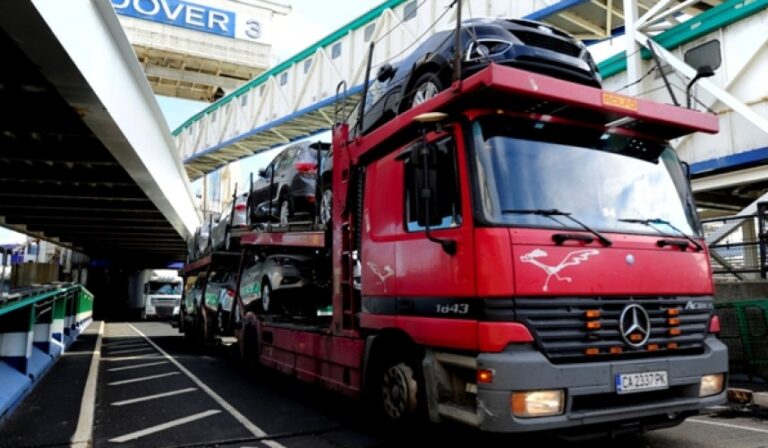The Cabinet Office has confirmed that a Kent Access Permit will be mandatory for HGVs using the Channel crossings to the European Union from the county.
The Access Permit plans – which includes a ‘Check an HGV’ service for hauliers to check if they have the correct customs documentation – form part of the wider and updated Great Britain-EU Border Operating Model which outlines import and export procedures after the end of the transition period this year.
For logistics operations using road freight to export goods the government states it is the responsibility of the “trader” to provide the necessary documentation to the driver of an HGV, and it is the driver who must carry and present the documentation when requested by border officials, or members of staff for the relevant carrier.
The government advice states that drivers without the correct documentation risk being stopped from boarding services departing Great Britain or on arrival at the EU port, being fined, or sent back to their point of departure.
It also warns that there is a risk of queues and delays, especially for HGVs weighing more than 7.5 tonnes, on the roads approaching ports on Great Britain-EU routes if high volumes of HGVs do not have the correct documentation.
RHA chief executive, Richard Burnett, said: “It’s vital that hauliers and traders do everything they can now to prepare for our new trading relationship with the EU. Firms moving goods across borders will have to undertake customs processes whether there’s a deal or no deal.
“The message is clear – if the paperwork’s not right, the goods won’t cross.”
Air freight and rail freight will treat movements of goods to the EU under the same conditions as Rest of the World.
From January 2021 traders importing standard goods, covering everything from clothes to electronics, will need to prepare for basic customs requirements, such as keeping sufficient records of imported goods. Traders will then have up to six months to complete customs declarations.
From July 2021 traders moving all goods will have to make declarations at the point of importation and pay relevant tariffs.
Logistics UK Policy Director, Elizabeth de Jong, said: “This clarity on trading arrangements from 1 January 2021 is welcomed by logistics businesses and it is now vital that all businesses trading with the EU use this guidance to make sure their staff and systems are fully prepared.”







